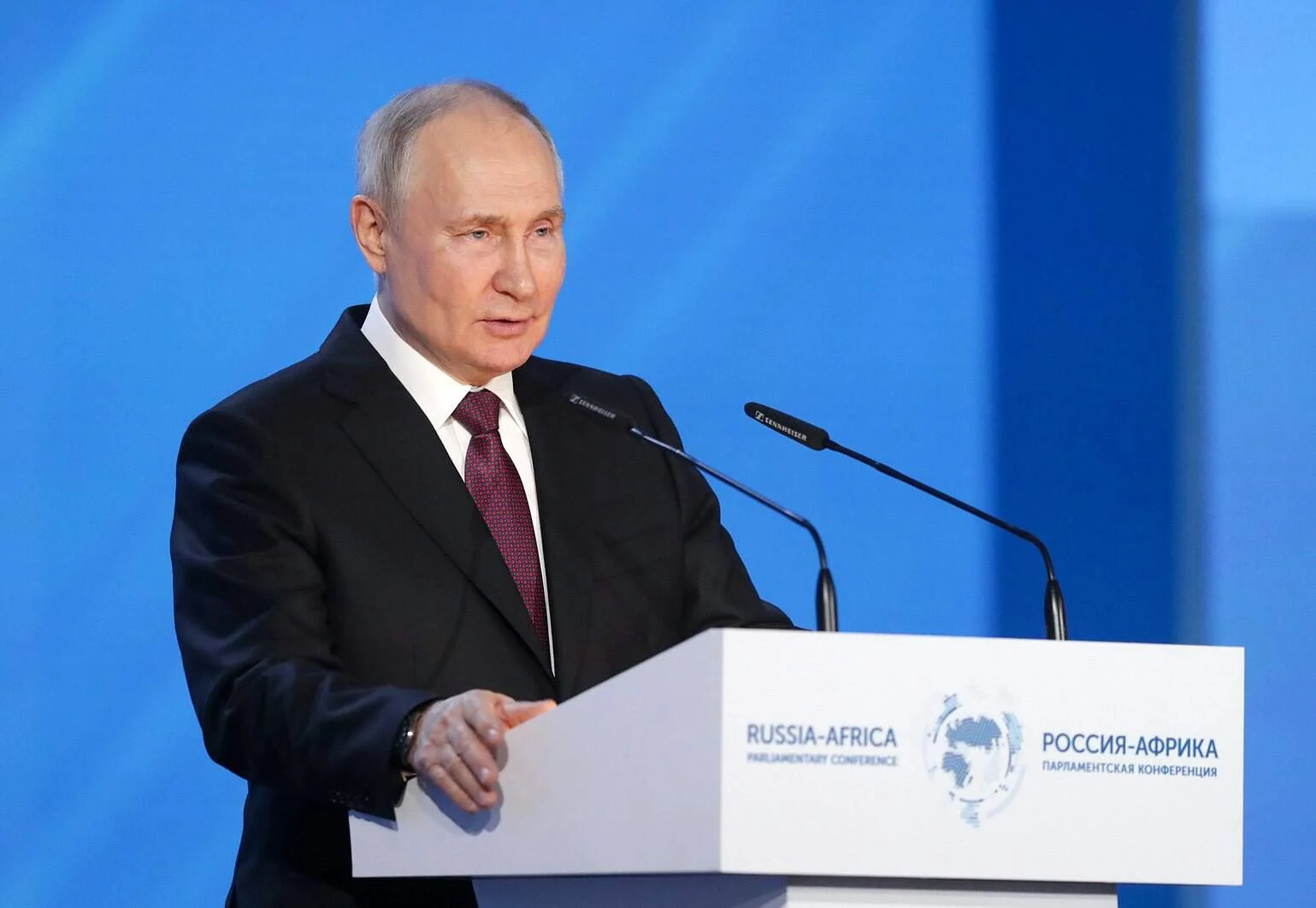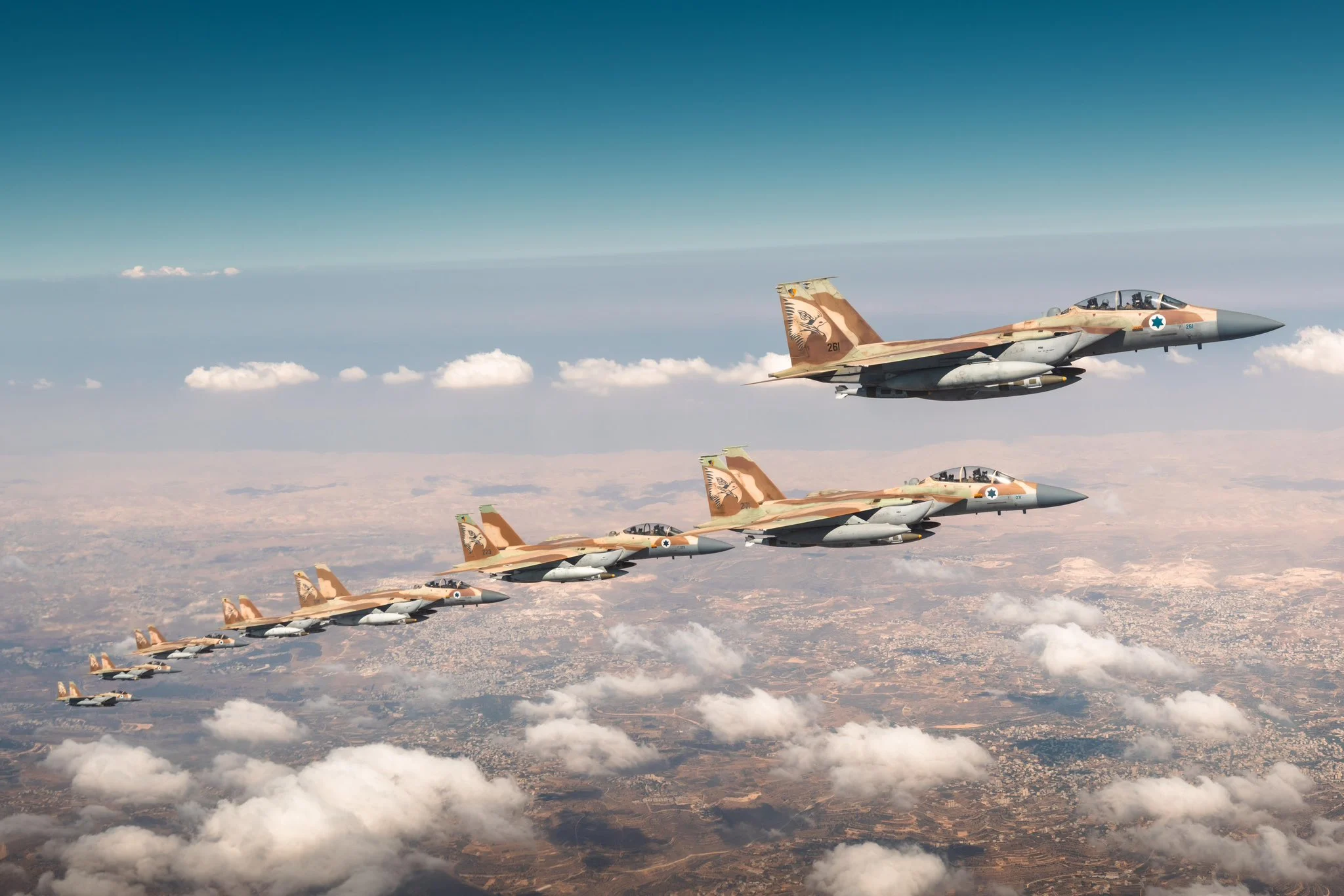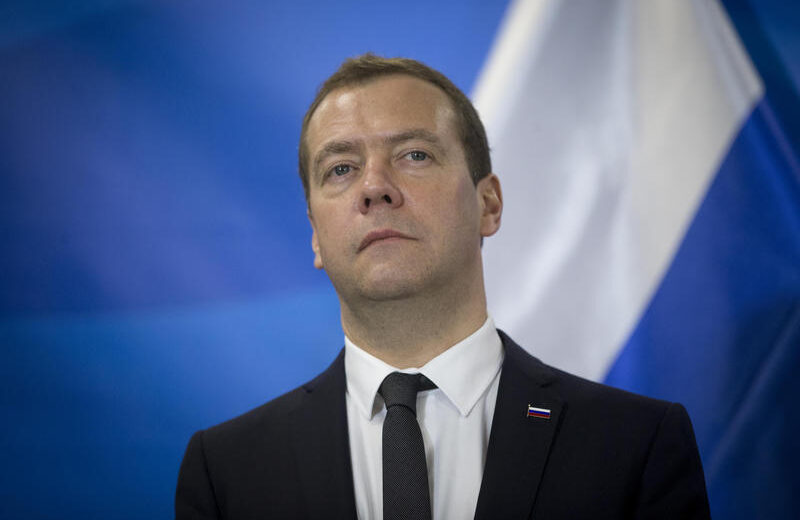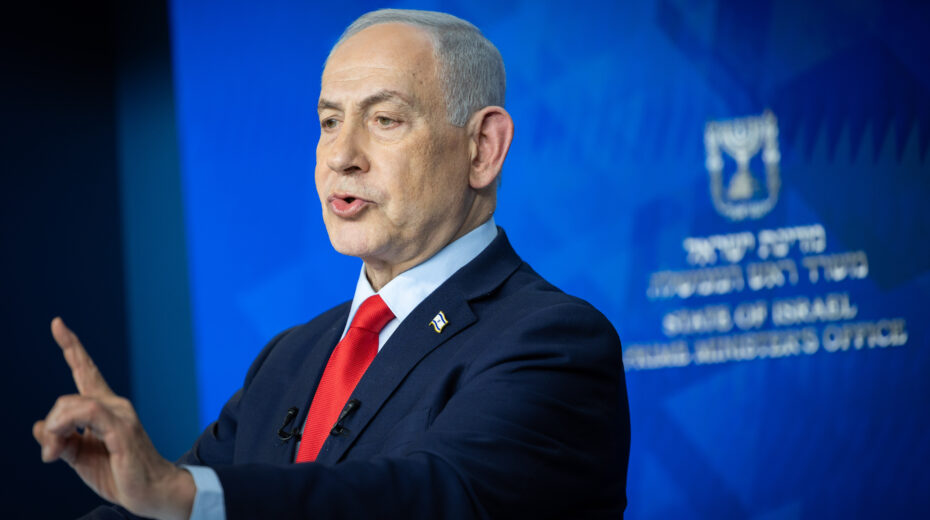(JNS) Amid the stream of heated rhetoric that accompanied Israel’s 12-day war with Iran, one statement stood out: An apparent threat by the previous president of Russia to supply Iran with nuclear weapons.
Dmitry Medvedev made the threat on Sunday and quickly retracted it following a rebuke by US President Donald Trump. The threat, which some experts dismissed but others considered a message from Russian President Vladimir Putin, underlined Moscow’s potentially fateful role in the international effort to keep Tehran from obtaining nuclear arms.
“The enrichment of nuclear material—and, now we can say it outright, the future production of nuclear weapons—will continue,” Medvedev said about Iran on X on June 22, a day before the Islamic Republic and Israel agreed on a ceasefire that ended their first direct military entanglement, with U.S. participation alongside Israel.
“A number of countries are ready to directly supply Iran with their own nuclear warheads,” added Medvedev, a Putin loyalist and deputy chairman of the Security Council of the Russian Federation who had served as president, in an arrangement that was widely seen as him acting as a placeholder for Putin.

Russian President Vladimir Putin addresses a plenary session of the international parliamentary conference titled “Russia-Africa in a Multipolar World” on March 20, 2023. Credit: State Duma of the Russian Federation via Wikimedia Commons.
Medvedev’s statement, by far the most explicit public endorsement by any Russian top official of Iran’s nuclear weapons program, was so unusual that it provoked an angry response from Trump.
“Did I hear Former President Medvedev, from Russia, casually throwing around the “N word” (Nuclear!), and saying that he and other countries would supply nuclear warheads to Iran? Did he really say that or, is it just a figment of my imagination? If he did say that, and, if confirmed, please let me know, IMMEDIATELY,” Trump wrote on Truth Social on June 23.
Trump continued, “The ‘N word’ should not be treated so casually. I guess that’s why Putin’s ‘THE BOSS’.”
The American president proceeded to brag about US military power, and particularly its nuclear submarines, a staple of the mutually assured destruction doctrine.
Medvedev backed down the following day. “Russia has no intention of supplying nuclear weapons to Iran because, unlike Israel, we are parties to the Nuclear Non-Proliferation Treaty. I know quite well what this would entail, having overseen our nuclear forces as president. But other countries might—and that’s what was said. And we definitely shouldn’t be arguing over who has more nukes,” he wrote.
Medvedev’s backtracking dovetailed with the view of some commentators of his original tweet as bravado by a politician with little power who doesn’t necessarily represent Putin. Medvedev has issued a number of provocative statements since his country invaded Ukraine in February 2022, triggering an ongoing conflict.
In 2023, he said that “the defeat of a nuclear power in a conventional war may trigger a nuclear war”—a remark widely interpreted as a direct threat by Russia, a nuclear power that’s struggling on the conventional battlefield against Ukraine, for NATO countries not to supply arms to Ukraine. He also said that Russia’s hypersonic missiles “will help if necessary” to drown the UK, which is arming Ukraine.

F-15I fighter jets fly toward Iran during “Operation Rising Lion” in June 2025. Credit: IDF.
Ksenia Svetlova, a Middle East analyst and senior research fellow at the Interdisciplinary Center Herzliya’s Institute for Policy and Strategy, was among the observers who downplayed the significance of Medvedev’s remarks. On X, Svetlova, a former lawmaker for Yair Lapid’s Yesh Atid Party, called Medvedev a “one-man circus show” in a position “without real influence.”
Medvedev is a “political corpse” who “does not speak for Putin,” although some “overestimate his influence,” Svetlova added.
Nadav Eyal, an Israeli journalist and foreign affairs expert, said that “folks forgot who we’re talking about,” referencing Medvedev. “The man is only half baked. His threat only attests frustration,” not any nuclear strategy or action by Putin, Eyal argued on X.
Dina Lisnyansky, a Tel Aviv University lecturer on Middle Eastern politics who has studied Russia’s deep involvement in it, sees things very differently.
“Medvedev doesn’t utter a single word that Putin hasn’t signed off on,” she told JNS. “It is very important to listen to what Medvedev has to say: He’s not speaking his own private mind here. “This is a pledge of sorts to Iran, and it’s part of a broader philosophy, which Putin has expressed on numerous occasions, to ensure a ‘global balance,’ as Putin has termed it.”
If Medvedev is indeed the court jester, Lisnyansky said, “then the operative word here is ‘court,’ as in Putin’s court, sending out messages from that court that are meant to be heard outside,” she added.
Russia was never openly supportive of Iran’s nuclear ambitions, but it has strengthened its ties with Tehran regardless of Iran’s pursuit of the bomb. The Russian-Iranian alliance deepened as the West imposed international sanctions on both countries—Russia over its Ukraine invasions and Iran for its nuclear program and sponsorship of terror.
Tehran signed a strategic partnership with Moscow in January (one that omitted any commitments to mutual defense) and sold Iran its advanced S-400 air defense systems, reportedly delivered to Iran in 2024, among other advanced weapons. Putin condemned the US and Israeli strikes on Iran, describing them as “absolutely unprovoked.”
Israel eliminated Iran’s top military command and most of its rocket launchers, and struck hundreds of strategic sites, including nine nuclear program targets, during the war that began on June 13. The US bombed three fortified nuclear sites, dropping bunker-busting munitions that Trump said “obliterated” the relevant facilities. Iran fired hundreds of missiles at Israel, most of which were intercepted. The ones that hit killed 28 people and inflicted minor damage on infrastructure.
Iran has vowed to lead a “revival” of its nuclear sites despite threats by Trump and Israeli Prime Minister Benjamin Netanyahu to strike again if it does.
Isolated, weakened and facing the prospects of fresh sanctions and hostilities led by the US, Iran has clear incentives to deepen its partnership with Russia even further after the war, Lisnyansky noted.
Russia is also interested in strengthening its ties with Iran as part of is efforts to consolidate a counterweight to the United States and Europe in BRICS—an intergovernmental organization and political bloc composed of Brazil, India, China, South Africa and Egypt, as well as Russia and Iran and three other countries.
BRICS, initiated by Russia, is the practical manifestation of Putin’s philosophy that the Soviet Union’s collapse and the United States’ ascent as the world’s only superpower created an unhealthy geopolitical imbalance that needs to be addressed by offsetting American power, Lisnyansky noted.
The Russian interest in Iran, specifically as part of that perceived remedy, has deep historical roots connected to the fact that the Islamic Republic “is strategically poised on Russia’s doorstep,” Lisnyansky added. For this reason, Russia will not adopt a neutral stance on Iran and will likely only seek to deepen its involvement there, she said.
“In the worldview of Russia’s ruling class, Iran isn’t just some faraway, troublesome country. It’s part of the neighborhood,” Lisnyansky explained.
Want more news from Israel?
Click Here to sign up for our FREE daily email updates














